

Past Event
Content from the Brookings Institution India Center is now archived. After seven years of an impactful partnership, as of September 11, 2020, Brookings India is now the Centre for Social and Economic Progress, an independent public policy institution based in India.
Brookings India organised a roundtable discussion on Smart Cities on 1 February 2016 at Claridges Hotel, New Delhi. The objective of the discussion was to bring together various stakeholders related to the smart city development of Ajmer, Allahabad and Visakhapatnam. Participants included Minister of State for Urban Development Babul Supriyo, officers from the Ministry of Urban Development, state urban development departments, members of the local city administration, prominent researchers and policy analyst. The discussion was focused around the urbanisation programmes undertaken by the Prime Minister Narendra Modi-led government.
The Smart Cities project is a collaborative venture between Brookings India and the Metropolitan Policy Program at the Brookings Institution, Washington D.C. The motivation for the project has been the Modi-Obama declaration to develop the cities of Ajmer, Allahabad and Visakhapatnam into smart cities. Our aim is to produce blueprints for the three cities, highlighting the sustainable economic engines of growth, local governance challenges and internationally comparable best practices regarding the area-based urbanisation approach of smart cities.
Dr. Shamika Ravi, Fellow, Development Economics at Brookings India, defined the following five critical areas of interest for the roundtable discussion:
Dr. Robert Puentes, Senior Fellow, Metropolitan Policy Program, the Brookings Institution, shared his global experience of smart cities-led model of urbanisation.
The concept of smart cities gained prominence a long time ago but has largely been a top-down approach driven by corporate agendas. Technological deployment could not be very successful due to lack of supporting governance and regulatory reforms. Local level participation and bottom-up approach is crucial for the success of the Smart Cities Initiative in India.
The roundtable commenced with an open discussion among the participants.
Some of the key points discussed were:
Definition of a smart city
Integrating larger economy around smart cities
Job creation
Special Purpose Vehicle (SPV)
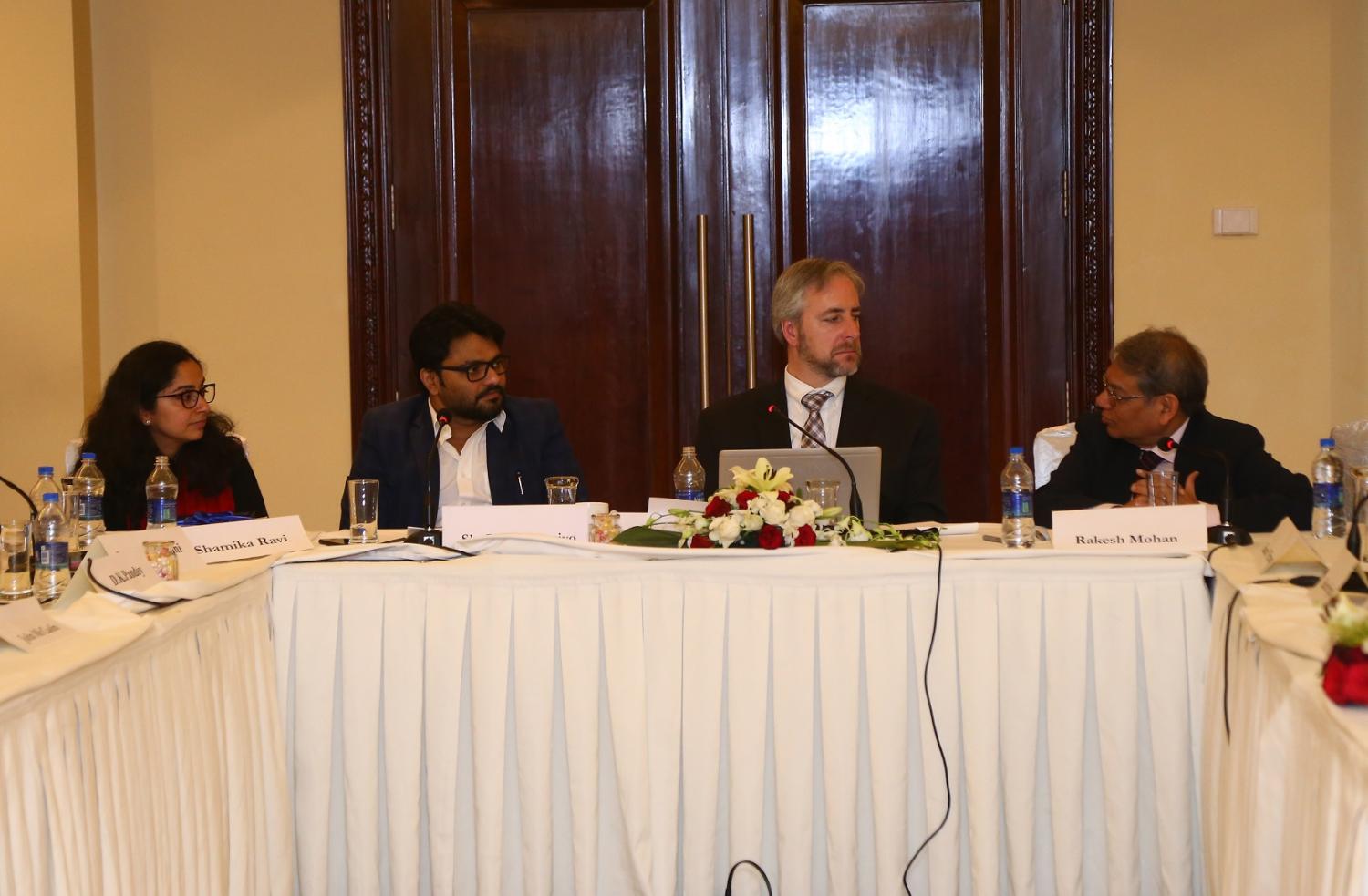
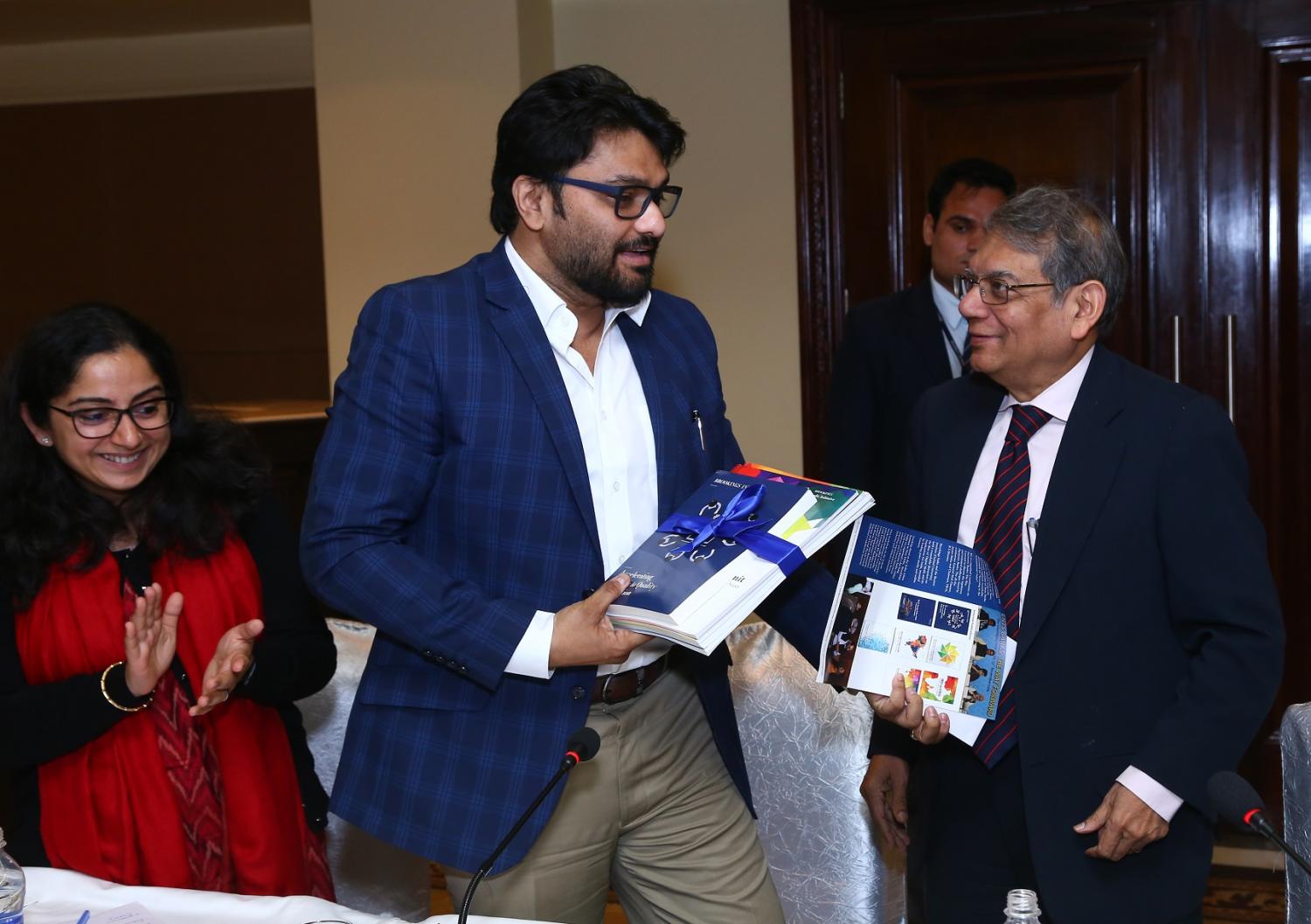
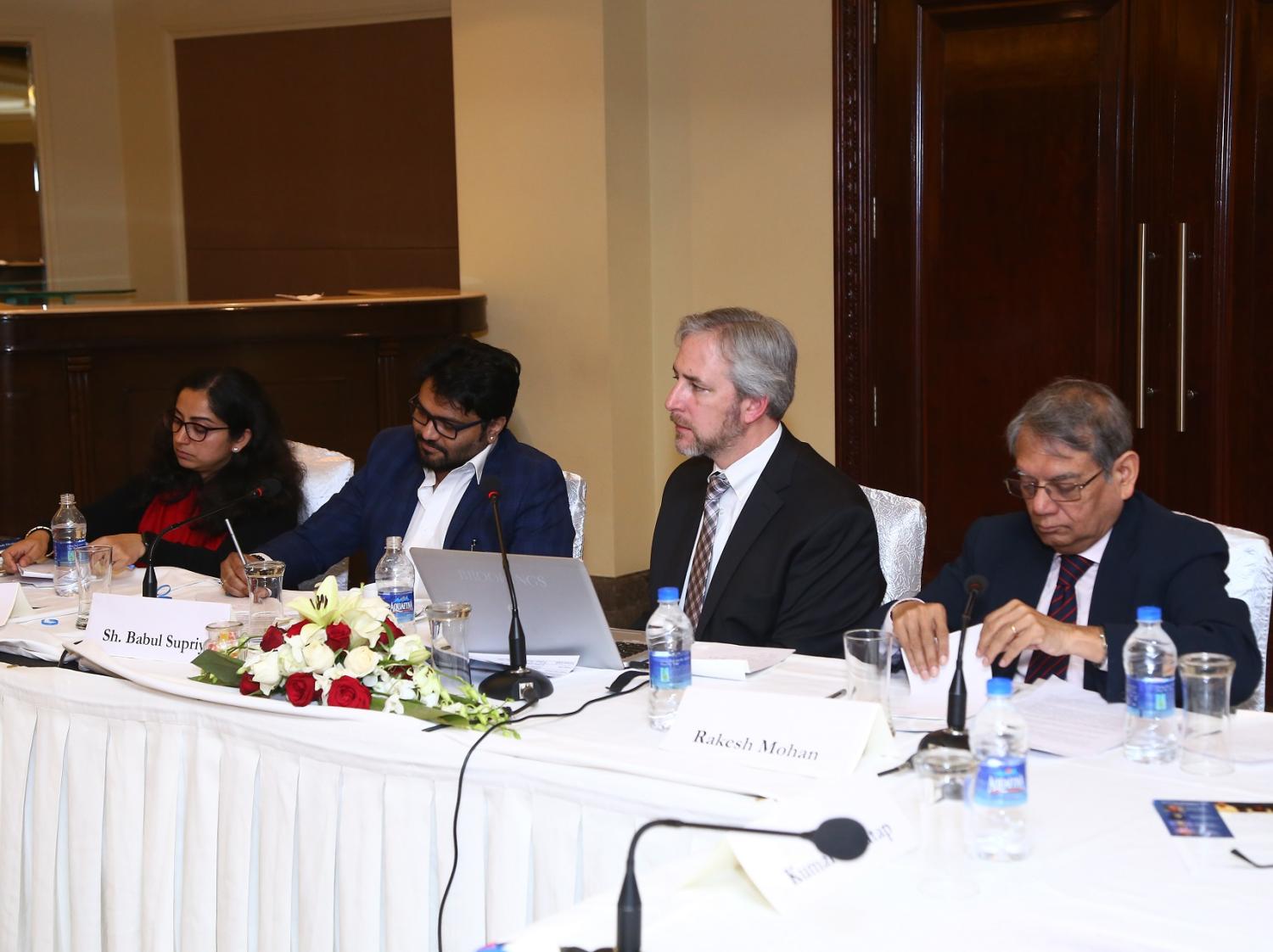
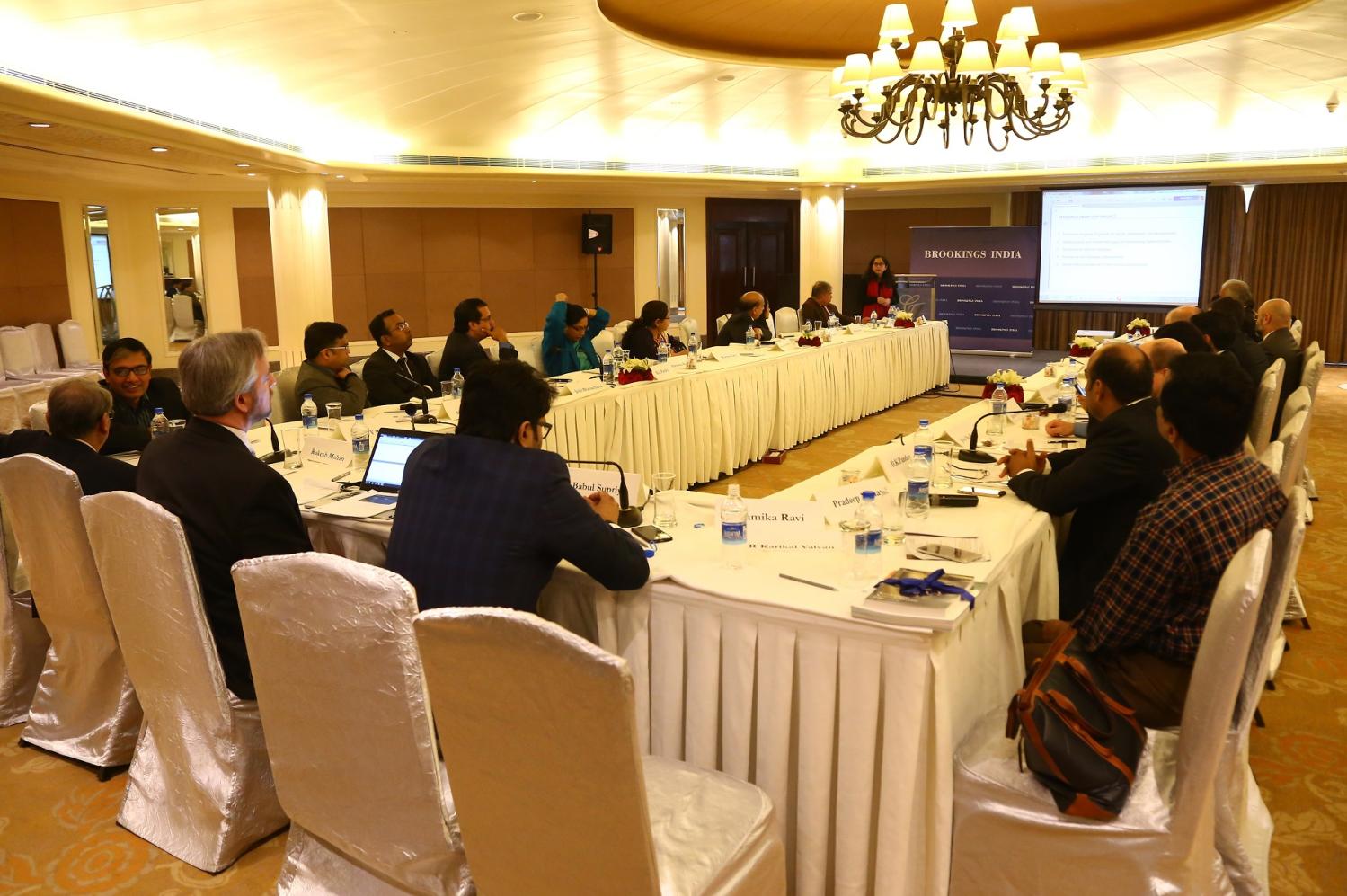
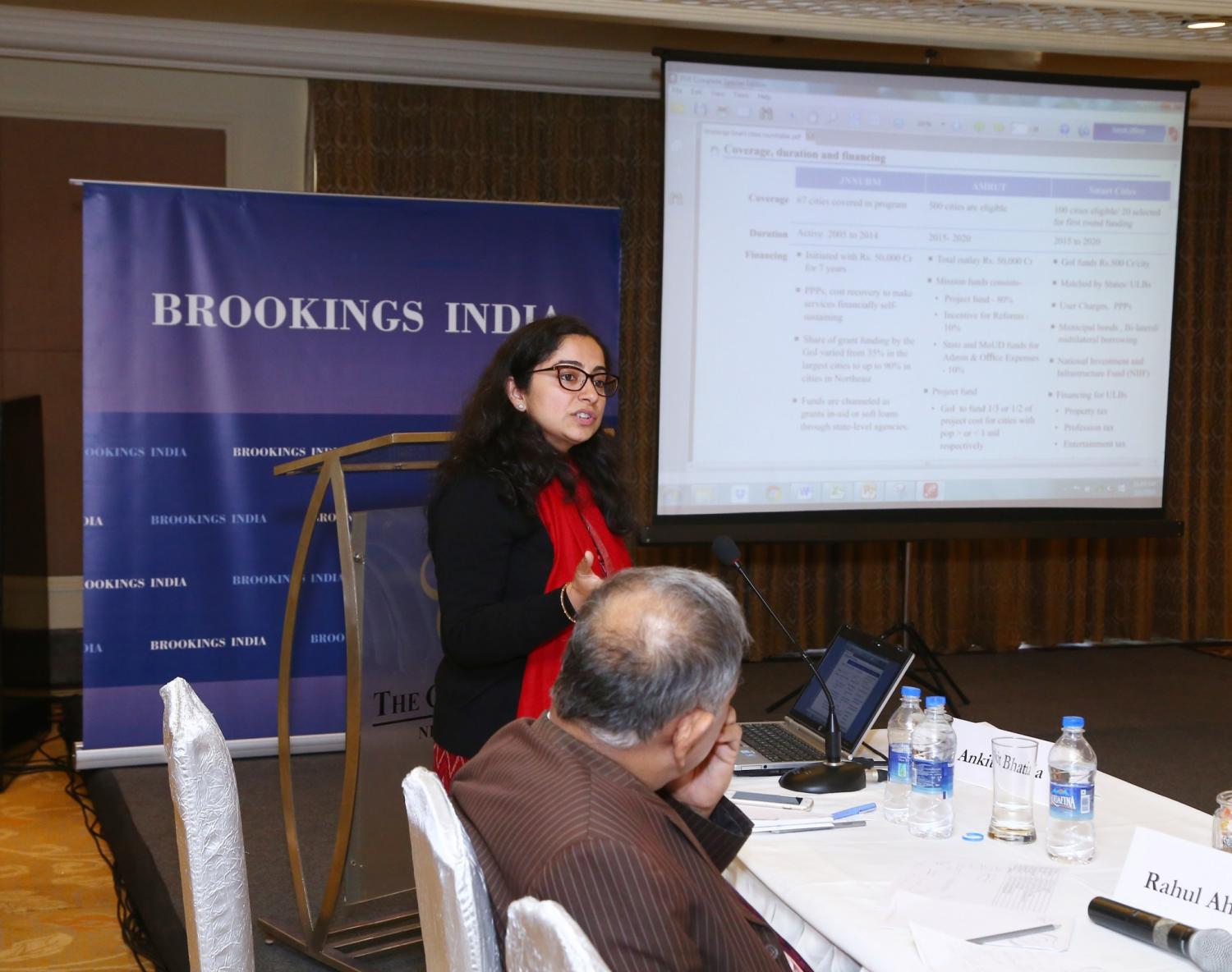
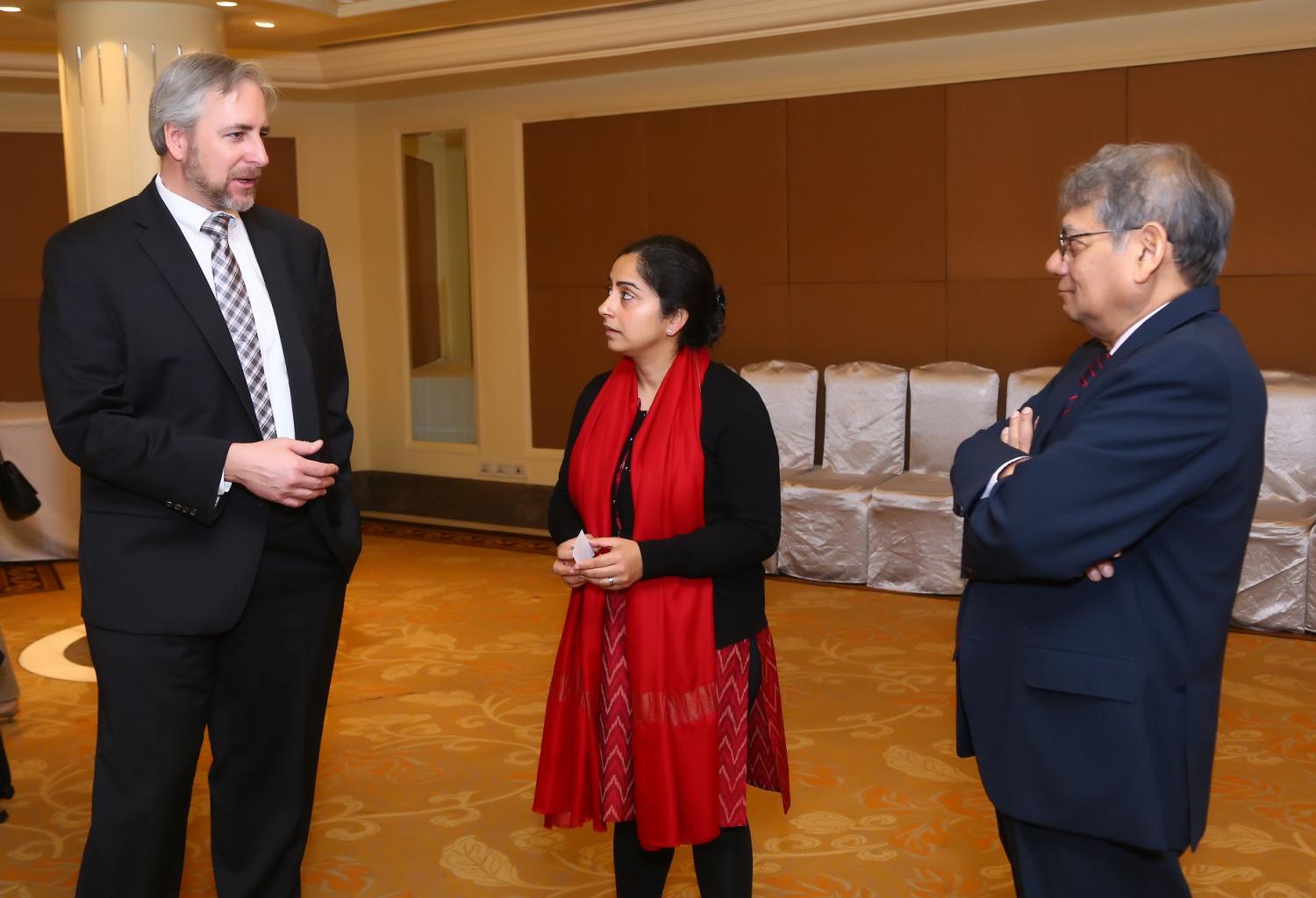
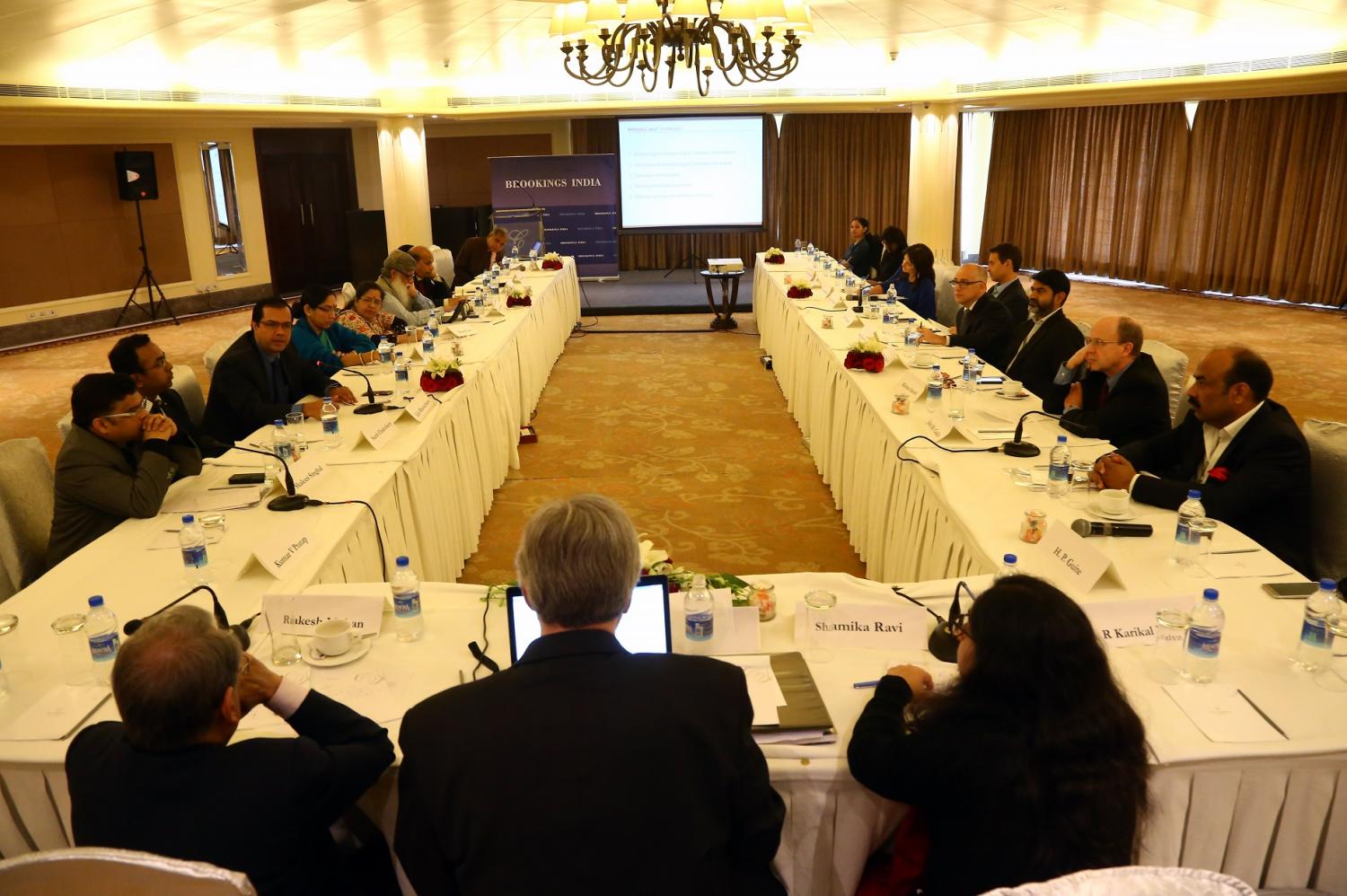
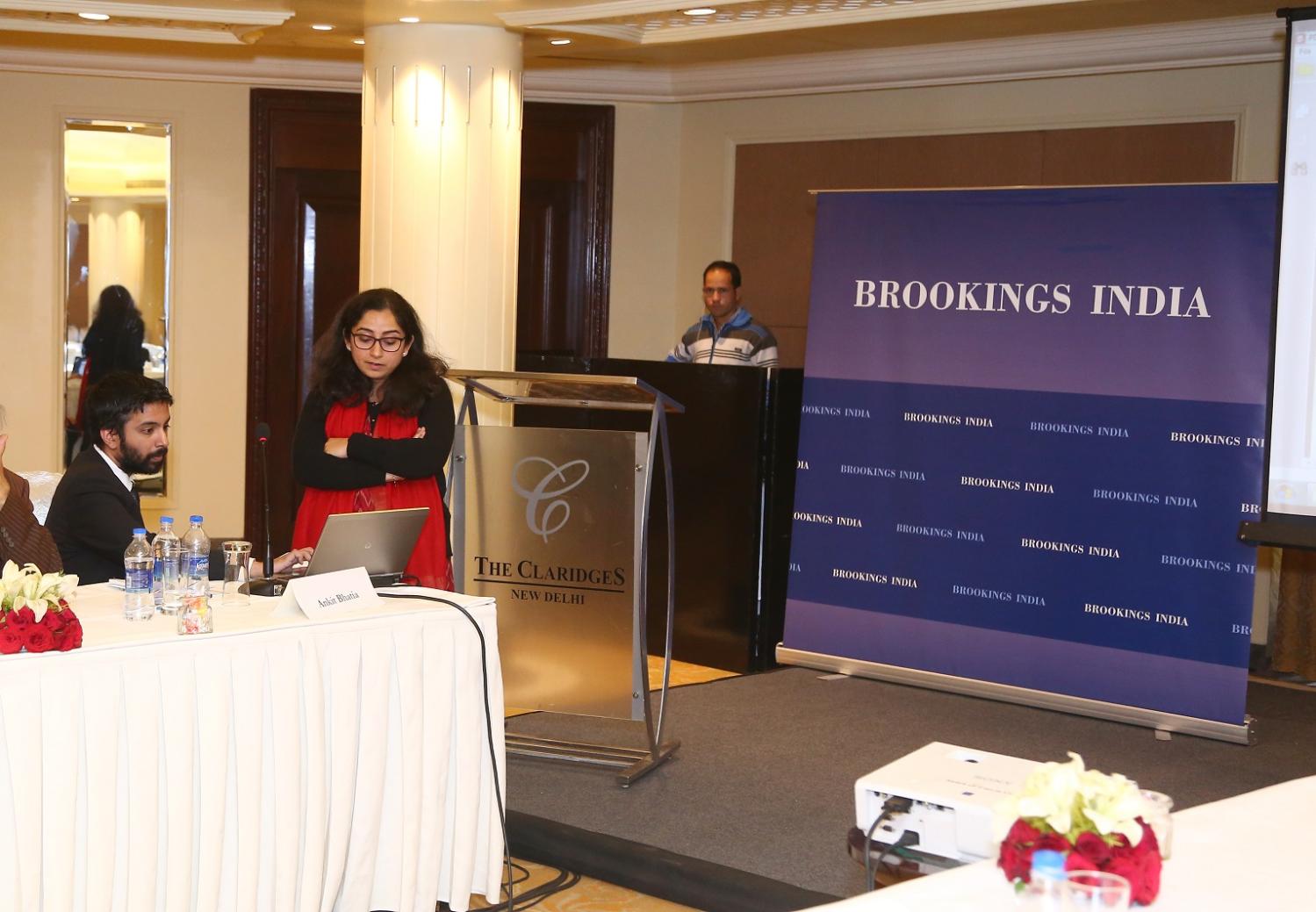
Dr. Shamika Ravi made a presentation on “Smart Cities, Data & Analysis – Ajmer, Allahabad and Visakhapatnam”. The presentation discussed and compared the urban development initiatives like JNNURM, AMRUT, Smart Cities and presented data on social, economic and demographic indicators for Ajmer, Allahabad and Visakhapatnam.
Dr. Robert Puentes’ presentation on “Smart Cities: Overview and International Comparisons” discussed the global thinking on smart city development approach for urbanisation. Dr. Puentes also presented a brief summary of a statistical analysis to determine the internationally comparable cities for Ajmer, Allahabad and Visakhapatnam based on the social economic and demographic profiles of the three cities. Key points highlighted were:
Municipal officials from Allahabad and Ajmer made the following points:
Key takeaways from Shri Supriyo’s remarks:
Like other products of the Brookings Institution India Center, this report is intended to contribute to discussion and stimulate debate on important issues. Brookings India does not have any institutional views.

Rahul Tongia, Anurag Sehgal, Puneet Kamboj
2020
Online Only
Tuesday, 4:00 am - 5:40 am IST

Saneet Chakradeo
August 18, 2020